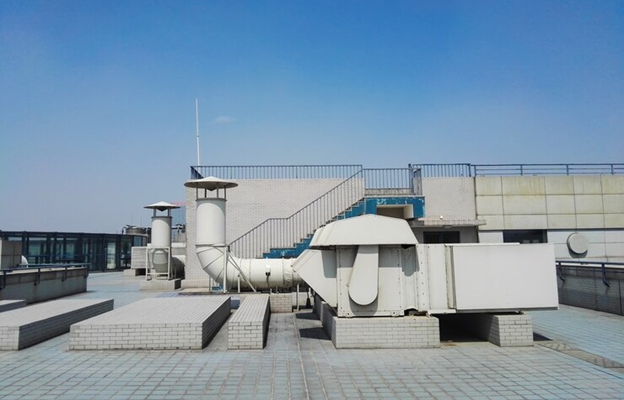Maintaining high standards of indoor air quality (IAQ) has become critical in modern commercial and industrial settings. Modern industrial air filtering systems and mini split air conditioning systems are great ways to accomplish this. This article delves into the ways these technologies complement one other to improve indoor air quality in different environments.
Getting to Know Mini Split AC Units
Often called ductless systems, mini split air conditioner is a multipurpose HVAC machine that provides effective heating and cooling. Mini splits are perfect for new builds and retrofits because they do not require ductwork, unlike standard central HVAC systems. An outside compressor/condenser and an inside air-handling device (or units) make up their primary construction.
Mini Splits and Their Impact on Indoor Air Quality
Mini split air conditioners are essential for enhancing indoor air quality (IAQ) in addition to controlling temperature. Usually, they have high-tech filtration systems that trap allergies, pollutants, and airborne particles, stopping them from circulating in indoor environments. Airborne pollutants in industrial settings are a particular health danger and productivity killer, thus this feature is a godsend.
Simplifying Industrial Air Filtering for Better Indoor Air Quality
Mini splits are great for improving indoor air quality, but larger rooms and more contaminants in industrial settings usually necessitate more powerful air filtering systems. Air filtration systems for industrial use are specifically engineered to meet these kinds of demands.
From dust and pollen to chemical fumes and microbiological contaminants, these systems use numerous layers of filtration to manage varied pollutants. Specifically, HEPA filters—which can trap particles as tiny as 0.3 microns in size—are essential in industrial environments, as they may collect up to 99.97% of these particles.
Industrial Air Filtering Systems and Mini Splits
Production Establishments
When used in conjunction with the Industrial air filtering system, micro split air conditioners greatly improve worker safety and product quality in production facilities that deal with airborne particles and odors. Manufacturers can reduce health hazards from airborne contaminants and stay in compliance with regulations by strategically deploying ductless units with HEPA filtering near production lines.
Medical Facilities
Strict indoor air quality management is necessary to protect patients’ health in healthcare facilities. By utilizing mini split systems, surgery suites and patient rooms can be efficiently heated or cooled, and industrial-grade air filters can eliminate airborne particles and germs. Infection control methods are vital in healthcare settings, and this integration helps to decrease the dangers of cross-contamination.
Business Complexes
Mini split systems are great for offices since they are compact, run quietly, and save space. Companies can make their workplaces healthier and more productive by installing these devices in conjunction with state-of-the-art air filtering systems. Employee health, reduced absenteeism, and increased job satisfaction are all outcomes of better indoor air quality (IAQ).
Inventions and Trends for the Future
In the future, advances in indoor air quality will be driven by developments in mini split technology and industrial air filtering devices. System efficiency and user convenience are enhanced by innovations including smart HVAC controls, remote monitoring capabilities, and sensor-based filtration changes.
In summary
Commercial and industrial buildings can take the initiative to improve the air quality for the benefit of their employees’ health, comfort, and productivity by installing small split air conditioning systems and industrial air filtering systems. Using the best features of both technologies, companies may make their workplaces safer and cleaner while cutting costs and improving efficiency.




